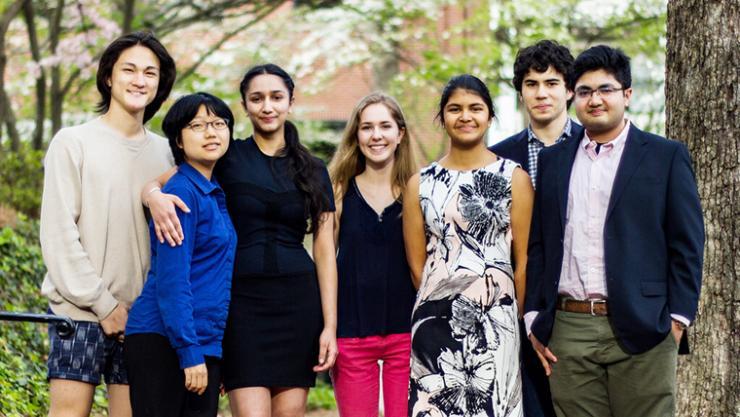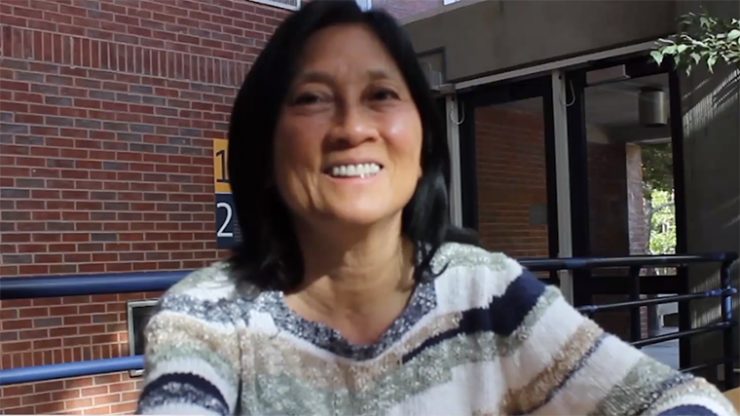Designing Climate-Change Solutions with Inspiration from Nature
Jun 26, 2018 — Atlanta, GA

A tidal-energy harvester inspired by the human heart. A soil-erosion solution that mimics a kingfisher’s eyelid. A mosquito-control device that functions like carnivorous plants. These technologies are among the eight finalists in a global competition that asks innovators to create radically sustainable climate-change solutions inspired by the natural world.
Among the finalists is Team FullCircle, a multidisciplinary team from Georgia Institute of Technology. The team wanted to find a more resilient way to harvest renewable energy, so they created a nature-inspired energy generator that produces clean renewable electricity from underwater sea currents.
The design was informed by the bell-shaped body of jellyfish, how schools of fish position themselves, how heart valves move liquid, and how kelp blades adapt rapidly to flowing water to maximize photosynthesis. Their goal is to create a more efficient way to generate power, decrease cost, and make this approach available to areas vulnerable to electricity shortage.
Members of Team FullCircle are students from the College of Sciences and College of Engineering:
- Ananya Jain, research leader, School of Materials Science and Engineering (MSE)
- Kenji Bomar, School of Physics
- Heyinn Rho, MSE
- Anmbus Iqbal, School of Mechanical Engineering
- Sara Thomas Mathew, School of Mathematics
- José Andrade, School of Aerospace Engineering
- Savannah Berry, School of Biological Sciences
School of Biological Sciences Professor Jeannette Yen served as primary faculty mentor. Yen is also director of the Center for Biologically Inspired Design at Georgia Tech. MSE Professors Preet Singh and Zhong Lin Wang also served as official research mentors. In addition, the team had access to second and third lines of researchers, graduate student advisors, and investors.
The team acknowledges the assistance, guidance, and support of various units of Georgia Tech, including:
- CREATE-X at Georgia Tech
- Georgia Tech Library
- Georgia Tech Communication Center (CommLab)
- Georgia Tech LMC CoLab
- Materials Innovation & Learning Laboratory (MILL)
- Scheller College of Business
- School of Aerospace Engineering
- School of Materials Science and Engineering
- School of Mechanical Engineering
Over 60 teams from 16 countries entered the Biomimicry Global Design Challenge, submitting nature-inspired inventions to reverse, mitigate, or adapt to climate change. Finalist teams – four from the U.S. and one each from the Netherlands, Taiwan, Israel, and China – receive cash prizes and an invitation to the 2018-19 Biomimicry Launchpad, an accelerator that supports the path to commercialization. They will compete for the $100,000 Ray C. Anderson Foundation Ray of Hope Prize®.
Read more about the winners and their innovations here.
Watch Team FullCircle describe its proposal here.
“I am so, so, so thrilled!” Yen says. “I can't wait to see what happens next.”
According to Jain, the team will coordinate the engineering project and assemble a prototype remotely, from different parts of the world – India, Japan, Pakistan, Spain, and the U.S. “We have a great challenge to be working from different time zones and schedules,” Jain says. “But we will do our very best and work even harder moving forward.”

A. Maureen Rouhi, Ph.D.
Director of Communications
College of Sciences




